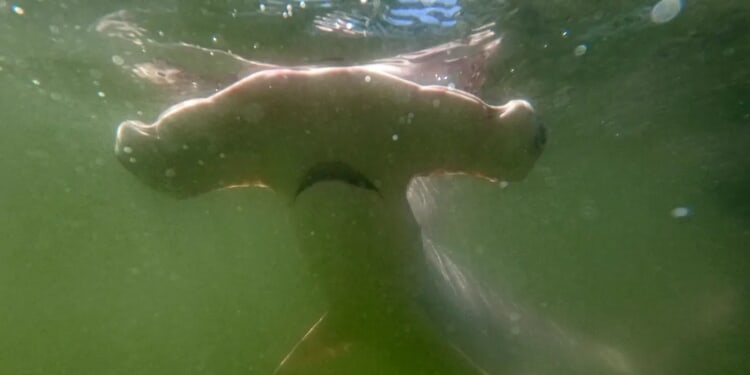According to a study that was done by researchers at the University of North Carolina, critically endangered shark meat is being sold at grocery stores across the United States, and often with labels that are misleading.
The school’s researchers bought 29 shark meat products and DNA barcoded them, doing so from shops in North Carolina, Florida, Georgia, Washington D.C. and vendors on the internet. The DNA testing showed 11 different shark species, however, 93% of the products were simply labeled “shark” or “mako shark” with no species identification whatsoever, per the new study from UNC-Chapel Hill. (RELATED: You Won’t Believe Size Of American Crocodile Chomping Down On Tarpon In Everglades)
Out of the 11 species that were put on the market, three of them are on the International Union for the Conservation of Nature’s critically endangered list, which are the great hammerhead, scalloped hammerhead and tope, per UNC. The shortfin mako shark, another species sold in grocery stores, is on the IUCN’s endangered list.
A new study by @UNC ecologists Savannah Ryburn and @JohnFBruno shows that shark meat is often mislabeled in grocery stores around the country — and that some meat is from critically endangered species.@NatGeo shared the Tar Heels’ research findings https://t.co/69VJXovllV
— UNC College of Arts and Sciences (@unccollege) September 30, 2025
Under current policy, sellers are only required by the U.S. Food and Drug Administration (FDA) to label their shark meat as “shark,” with no requirement to identify the species.
The study was done by instructors, teaching assistants and students in a seafood forensics class led by Chi Omega Distinguished Professor John Bruno, who is a part of the UNC College of Arts and Sciences’ biology department. The course allows students the chance to analyze samples of food, and it has revealed that the mislabeling of seafood is spreading unchecked.
Out of the approximately 550 shark species that exist, 14% are listed as vulnerable, 11% endangered and 12% critically endangered, according to the IUCN. Primarily, sharks are captured for their fins to make shark fin soup, which is considered a delicacy. Rich in urea, shark meat is generally of poor taste.

















